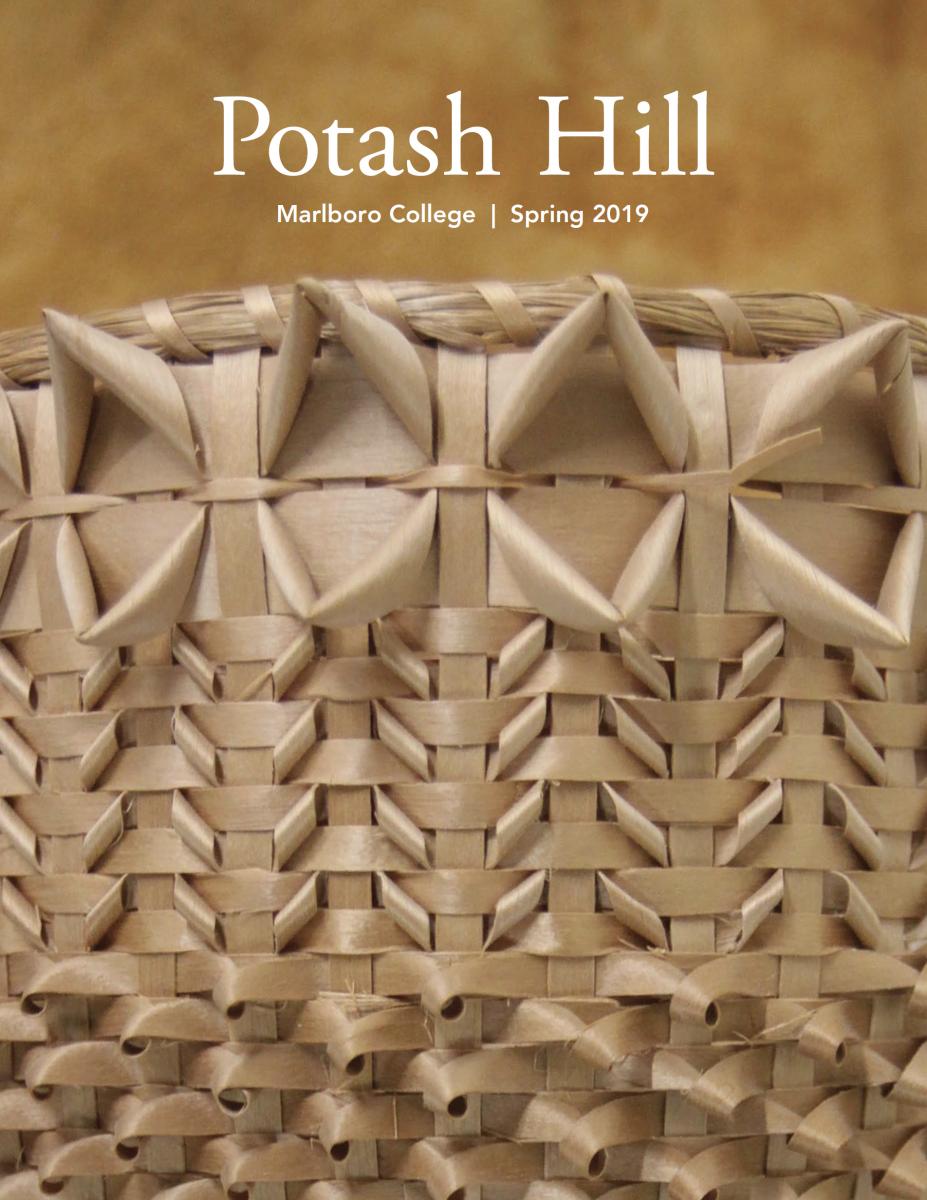 “I was drawn to Marlboro because it was an intentionally small school with an emphasis on teaching, and an openness to political aspects of literature,” says Rituparna Mitra, who joined Marlboro as professor of literature and writing in the fall. “But once I came here, then I noticed other things like the community, the way people interacted with one another—there was this closeness and at the same time freshness that I liked. And the independence that the students are encouraged to have—thinking of a long-term project, investing in it—that was something that struck me a lot. It’s a rare thing to find elsewhere.”
“I was drawn to Marlboro because it was an intentionally small school with an emphasis on teaching, and an openness to political aspects of literature,” says Rituparna Mitra, who joined Marlboro as professor of literature and writing in the fall. “But once I came here, then I noticed other things like the community, the way people interacted with one another—there was this closeness and at the same time freshness that I liked. And the independence that the students are encouraged to have—thinking of a long-term project, investing in it—that was something that struck me a lot. It’s a rare thing to find elsewhere.”
Rituparna has more than a decade of experience teaching literature and writing in both the US and India, including at Michigan State University where she received her PhD. Her dissertation examined South Asian representations of trauma from the Partition of 1947 and subsequent Hindu-Muslim conflict in India, offering a postcolonial and global understanding of what has mostly been a Eurocentric narrative. Rituparna’s expertise in the areas of global Anglophone literature, social and environmental justice, displacement and migration, and gender and ethnicity brings a transnational perspective to the exploration of literature and writing for Marlboro students.
“I’m here to teach teach global literature as well as postcolonial literature with a deep emphasis on colonization, and so my literature courses definitely address that element,” says Rituparna. In the fall she taught a course on Transnational and Diasporic Narratives, looking at the ways in which the history of colonization and cultural collisions continue to resonate in the way people think about themselves and their place in the world. She also taught a writing seminar on Narratives of Trauma and Witnessing.
“Traumas are often seen through an individual lens, and the Holocaust has been central to the way we think about shared trauma, especially in academics. So, I start at the Holocaust, but then I move on to postcolonialism traumas. I encourage people to think comparatively.” In the spring, Rituparna is excited to be teaching a course on the contemporary global novel. “We’ll be looking a lot at what makes a novel global, and what other worlds are possible.”
Rituparna has had to adjust to smaller class sizes, after teaching in larger classrooms for many years. She says that having fewer speakers in the room pushes her more as a teacher, and demands that she is on her toes at all times. On the other hand, when everyone is fully engaged it is like nothing she’s ever experienced before.
“It’s absolutely fabulous to have just six people in a room, but with an explosion of insights,” says Rituparna. “It’s such an intimate setting, with everybody that involved. I enjoy the different insights they all bring from their different Plans. They have so much experience already, and they’re sharing it from each of their perspectives. As a teacher I’m still constantly learning.”
As far as her own scholarly activities, Rituparna is currently preparing a book manuscript based on her dissertation, titled Postcolonial Trauma in South Asia: Body, Memory, and Displacement in Literature. One chapter has already been published in the edited collection The Postcolonial World, and another is to be published in the forthcoming Beyond Partition: Mediascapes and Literature in Post-colonial India, Pakistan, and Bangladesh. Rituparna is also working on a second book project that examines representations of global terrorism in South Asian Anglophone literature, where terrorism is linked to the failures of the postcolonial state and to uneven globalization.
Rituparna finds great inspiration in the peace and natural beauty of Marlboro, having spent most of her adult life in more urban areas. “Just being in a place that’s this beautiful, even when it’s gray and rainy, nurtures me in a sense. It feels magical, and nourishes creativity. I love that. So, on one hand, just the place— the physicality—but also the people I interact with. It’s such a joy to have intelligent, open-minded, aware people. I’m actually getting spoiled.”

